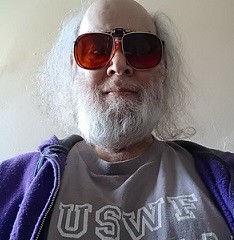Thursday, September 05, 2019
Is This The Year African Martial Arts And Combat Sports Explode Onto The World Stage?
It was in Africa that the martial arts and combat sports originated. And it was Africa that gave these to the world. The tomb paintings of wrestlers and martial artists in the Ancient Egyptian cemetery site now called Beni Hasan from over 4000 years ago are perhaps the most famous surviving illustrations of this history.
For as many millennia as human civilization has existed and developed, African martial arts and combat sports have continued to be taught, practiced, and handed down from generation to generation.
Yet today, owing mainly to the systems of colonialism and imperialism and their all-around subjugation of the African continent, the African martial arts and combat sports have not achieved the worldwide notoriety and recognition that Asian martial arts have had for over a century. Outside Africa, mainly just serious martial arts and combat sports aficionados are even aware of their existence.
That, however, may be beginning to change.
Earlier this year in April, the first event of the African Warriors Fighting Championship (http://africanwarriorsfc.com) was held in the village of Eha Amufu in Enugu state in southeastern Nigeria. This village is known as one of the centers of Nigerian traditional wrestling, which was one of the two sports contested in this debut event. The other sport was Dambe, a traditional form of boxing popular in West Africa where the back hand is wrapped and used for striking while the front hand is used for defense, along with kicks and sweeps being allowed.
(https://www.voice-online.co.uk/article/taking-african-combat-sports-village-world)
While the name African Warriors Fighting Championship may sound similar to those of various mixed martial arts promotions, its plans, according to founder and CEO Maxwell Kalu, who is of Nigerian heritage and based in London, are quite unique.
In an interview on No Holds Barred, he stated, "There's such a rich culture of them, and rather than be the sort of poor African cousin of the UFC, of ONE, or of Cage Warriors, or whatever, I'd thought, I'd love to do something totally, totally different that really speaks to the uniqueness of Africa, starting with Nigeria, and really plays to our strengths."
(https://www.podomatic.com/podcasts/nhbnews/episodes/2019-08-30T01_53_40-07_00)
After this debut event in April, their next event, called "The Battle for Lagos", is scheduled for September 14 at the Jalisco Stadium, Oshodi, Lagos. A third, larger event is also planned for December in Lagos. If all goes well, future plans include expanding throughout Africa and other parts of the world, and getting TV and streaming distribution.
But it is not only in Africa that these martial arts and combat sports are gaining in influence and popularity. Particularly in the African diaspora in the U.S., and also among the broader martial arts and combat sports community, interest in them is growing and flourishing.
One example of this is the renewed interest in the fighting system known as 52 Blocks. This uses boxing and other techniques in large part for defense in street fights rather than for sport in the ring. 52 Blocks is a loose and ever-changing system that has been handed down for countless generations, primarily among African-Americans, and is taught and practiced differently in different locales and by different trainers.
What each variation of 52 Blocks has in common, however, is its African origin.
As Harlem-based martial artist and instructor Mahaliel Bethea AKA Professor Mo said in a recent cover story in Black Belt magazine, "Most masters of 52 Blocks will tell you that it's a martial art from Africa."
(https://blackbeltmag.com/arts/western-european-arts/professor-mo-everything-to-know-about-52-blocks)
Besides Professor Mo, who is returning home this week from Ghana's "Year of Return" events, many others are training people in 52 Blocks.
On September 8 in Atlanta, Georgia, veteran martial artists Balogun Ojetade of the African Martial Arts Institute and 52 Blocks trainer Wise Morrow will be holding "A Day With The Masters" focusing on 52 Blocks and African martial arts.
(https://www.facebook.com/events/362721771095731)
Another trainer, Lyte Burly, has also conducted numerous 52 Blocks seminars across the U.S., and holds regular training sessions in Harlem's Marcus Garvey Park and elsewhere. He is also a boxing trainer. On YouTube, he regularly posts short videos demonstrating these techniques.
(https://www.youtube.com/user/52blocksinfo/featured)
Besides many other practitioners of 52 Blocks, many people are studying and exploring the history of African martial arts. On the weekend of May 17 of this year in Austin, Texas, the Council of HAMAA, the Historical African Martial Arts Association, held its first gathering "to celebrate Historical African Martial Arts". According to their web site, the "HAMA community gathered in solidarity to feast, study, and compete in the first ever HAMAA Tournament of Champions."
(https://hamaassociation.wordpress.com/media/hamaa-the-gathering-2019)
While a new generation is moving forward with the African martial arts and combat sports, some veteran African-American martial artists of earlier generations are still active. Founded in that turbulent year of 1969, the Black Karate Federation recently commemorated its 50th anniversary, with some members continuing to train younger people.
(https://www.facebook.com/Brotherhoodofthebkf)
All these developments are occurring while there is a vacuum forming in the martial arts and combat sports worlds. For example, the largest mixed martial arts promotion in the world, the Ultimate Fighting Championship, has become politicized as it uses white nationalism and racism as marketing tools to secure its primarily white, cultish fan base. Instead of penalizing athletes who have publicly made all sorts of racist, white supremacist, misogynist, anti-working class, and anti-LGBTQ remarks and statements, as almost all legitimate sports organizations do, UFC's management has encouraged and rewarded people who have done this, like Chael Sonnen, Conor McGregor, and Colby Covington.
("The UFC Has A Race Problem")
By importing the "good guy vs. bad guy" schtick of the fake wrestling groups, and even going as far as making a propaganda video praising Donald Trump, UFC is alienating many people who have been part of the martial arts and combat sports worlds.
In contrast, both in Africa and among African-Americans, learning the martial arts and combat sports has been seen as part of the overall freedom struggles.
For example, Malcolm X famously said on March 29, 1964, at New York's Audubon Ballroom, "If you're interested in freedom, you need some judo, you need some karate, you need all the things that will help you fight for freedom."
(http://www.vlib.us/amdocs/texts/malcolmx0364.html and https://www.youtube.com/watch?v=blvoRFIPwM8)
And with these freedom struggles reviving in the 21st century, so is interest in the African martial arts and combat sports.
The door, thus, is open fairly wide for the African martial arts and combat sports to step through and explode in popularity. But even with all the compelling stories briefly outlined above, one would have to hunt through a series of Facebook, YouTube, WordPress, and similar pages just to find and process them.
What is needed, then, are major media projects to tell these stories to a wide international audience. If done well enough, such media can help the African martial arts and combat sports burst into the general public's consciousness. The dramatized martial arts films of the 1970s played a major role in popularizing Chinese martial arts, so media today has the potential to popularize African martial arts and combat sports with a new generation.
So is this the year in which African martial arts and combat sports take their rightful, prominent place on the world stage? At minimum, they have already taken major steps in that direction. It is up to all of those who study, support, teach, and practice the African martial arts and combat sports to work to continue and assist this ongoing process.
For as many millennia as human civilization has existed and developed, African martial arts and combat sports have continued to be taught, practiced, and handed down from generation to generation.
Yet today, owing mainly to the systems of colonialism and imperialism and their all-around subjugation of the African continent, the African martial arts and combat sports have not achieved the worldwide notoriety and recognition that Asian martial arts have had for over a century. Outside Africa, mainly just serious martial arts and combat sports aficionados are even aware of their existence.
That, however, may be beginning to change.
Earlier this year in April, the first event of the African Warriors Fighting Championship (http://africanwarriorsfc.com) was held in the village of Eha Amufu in Enugu state in southeastern Nigeria. This village is known as one of the centers of Nigerian traditional wrestling, which was one of the two sports contested in this debut event. The other sport was Dambe, a traditional form of boxing popular in West Africa where the back hand is wrapped and used for striking while the front hand is used for defense, along with kicks and sweeps being allowed.
(https://www.voice-online.co.uk/article/taking-african-combat-sports-village-world)
While the name African Warriors Fighting Championship may sound similar to those of various mixed martial arts promotions, its plans, according to founder and CEO Maxwell Kalu, who is of Nigerian heritage and based in London, are quite unique.
In an interview on No Holds Barred, he stated, "There's such a rich culture of them, and rather than be the sort of poor African cousin of the UFC, of ONE, or of Cage Warriors, or whatever, I'd thought, I'd love to do something totally, totally different that really speaks to the uniqueness of Africa, starting with Nigeria, and really plays to our strengths."
(https://www.podomatic.com/podcasts/nhbnews/episodes/2019-08-30T01_53_40-07_00)
After this debut event in April, their next event, called "The Battle for Lagos", is scheduled for September 14 at the Jalisco Stadium, Oshodi, Lagos. A third, larger event is also planned for December in Lagos. If all goes well, future plans include expanding throughout Africa and other parts of the world, and getting TV and streaming distribution.
But it is not only in Africa that these martial arts and combat sports are gaining in influence and popularity. Particularly in the African diaspora in the U.S., and also among the broader martial arts and combat sports community, interest in them is growing and flourishing.
One example of this is the renewed interest in the fighting system known as 52 Blocks. This uses boxing and other techniques in large part for defense in street fights rather than for sport in the ring. 52 Blocks is a loose and ever-changing system that has been handed down for countless generations, primarily among African-Americans, and is taught and practiced differently in different locales and by different trainers.
What each variation of 52 Blocks has in common, however, is its African origin.
As Harlem-based martial artist and instructor Mahaliel Bethea AKA Professor Mo said in a recent cover story in Black Belt magazine, "Most masters of 52 Blocks will tell you that it's a martial art from Africa."
(https://blackbeltmag.com/arts/western-european-arts/professor-mo-everything-to-know-about-52-blocks)
Besides Professor Mo, who is returning home this week from Ghana's "Year of Return" events, many others are training people in 52 Blocks.
On September 8 in Atlanta, Georgia, veteran martial artists Balogun Ojetade of the African Martial Arts Institute and 52 Blocks trainer Wise Morrow will be holding "A Day With The Masters" focusing on 52 Blocks and African martial arts.
(https://www.facebook.com/events/362721771095731)
Another trainer, Lyte Burly, has also conducted numerous 52 Blocks seminars across the U.S., and holds regular training sessions in Harlem's Marcus Garvey Park and elsewhere. He is also a boxing trainer. On YouTube, he regularly posts short videos demonstrating these techniques.
(https://www.youtube.com/user/52blocksinfo/featured)
Besides many other practitioners of 52 Blocks, many people are studying and exploring the history of African martial arts. On the weekend of May 17 of this year in Austin, Texas, the Council of HAMAA, the Historical African Martial Arts Association, held its first gathering "to celebrate Historical African Martial Arts". According to their web site, the "HAMA community gathered in solidarity to feast, study, and compete in the first ever HAMAA Tournament of Champions."
(https://hamaassociation.wordpress.com/media/hamaa-the-gathering-2019)
While a new generation is moving forward with the African martial arts and combat sports, some veteran African-American martial artists of earlier generations are still active. Founded in that turbulent year of 1969, the Black Karate Federation recently commemorated its 50th anniversary, with some members continuing to train younger people.
(https://www.facebook.com/Brotherhoodofthebkf)
All these developments are occurring while there is a vacuum forming in the martial arts and combat sports worlds. For example, the largest mixed martial arts promotion in the world, the Ultimate Fighting Championship, has become politicized as it uses white nationalism and racism as marketing tools to secure its primarily white, cultish fan base. Instead of penalizing athletes who have publicly made all sorts of racist, white supremacist, misogynist, anti-working class, and anti-LGBTQ remarks and statements, as almost all legitimate sports organizations do, UFC's management has encouraged and rewarded people who have done this, like Chael Sonnen, Conor McGregor, and Colby Covington.
("The UFC Has A Race Problem")
By importing the "good guy vs. bad guy" schtick of the fake wrestling groups, and even going as far as making a propaganda video praising Donald Trump, UFC is alienating many people who have been part of the martial arts and combat sports worlds.
In contrast, both in Africa and among African-Americans, learning the martial arts and combat sports has been seen as part of the overall freedom struggles.
For example, Malcolm X famously said on March 29, 1964, at New York's Audubon Ballroom, "If you're interested in freedom, you need some judo, you need some karate, you need all the things that will help you fight for freedom."
(http://www.vlib.us/amdocs/texts/malcolmx0364.html and https://www.youtube.com/watch?v=blvoRFIPwM8)
And with these freedom struggles reviving in the 21st century, so is interest in the African martial arts and combat sports.
The door, thus, is open fairly wide for the African martial arts and combat sports to step through and explode in popularity. But even with all the compelling stories briefly outlined above, one would have to hunt through a series of Facebook, YouTube, WordPress, and similar pages just to find and process them.
What is needed, then, are major media projects to tell these stories to a wide international audience. If done well enough, such media can help the African martial arts and combat sports burst into the general public's consciousness. The dramatized martial arts films of the 1970s played a major role in popularizing Chinese martial arts, so media today has the potential to popularize African martial arts and combat sports with a new generation.
So is this the year in which African martial arts and combat sports take their rightful, prominent place on the world stage? At minimum, they have already taken major steps in that direction. It is up to all of those who study, support, teach, and practice the African martial arts and combat sports to work to continue and assist this ongoing process.
Labels: 52 Blocks, Africa, African Warriors Fighting Championship, boxing, combat sports, Dambe, Eddie Goldman, martial arts, No Holds Barred, wrestling
Comments:
Post a Comment























